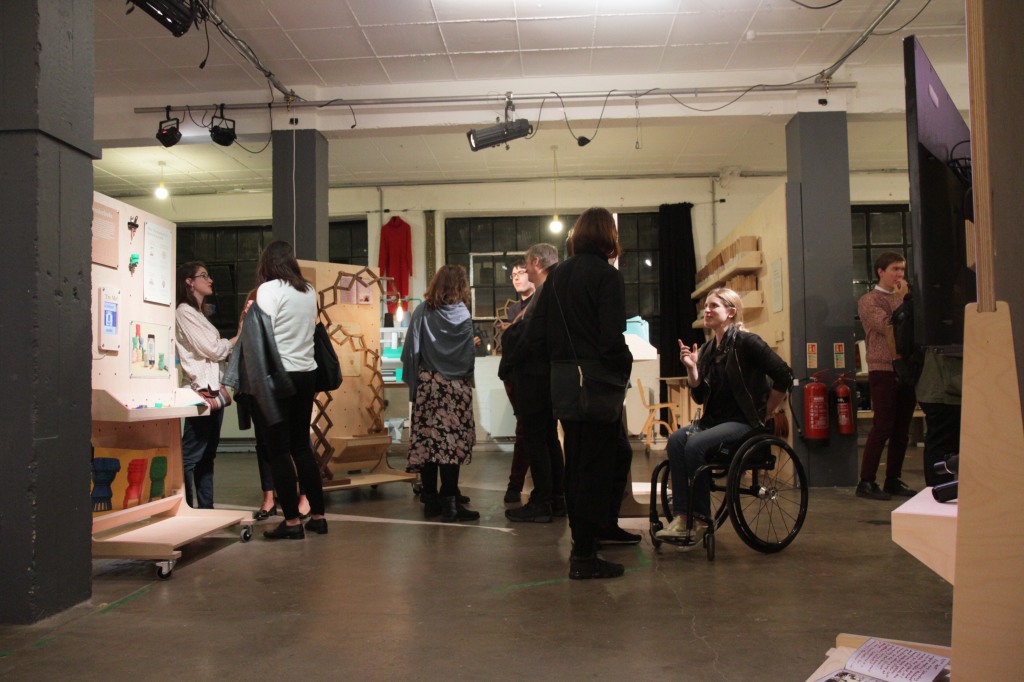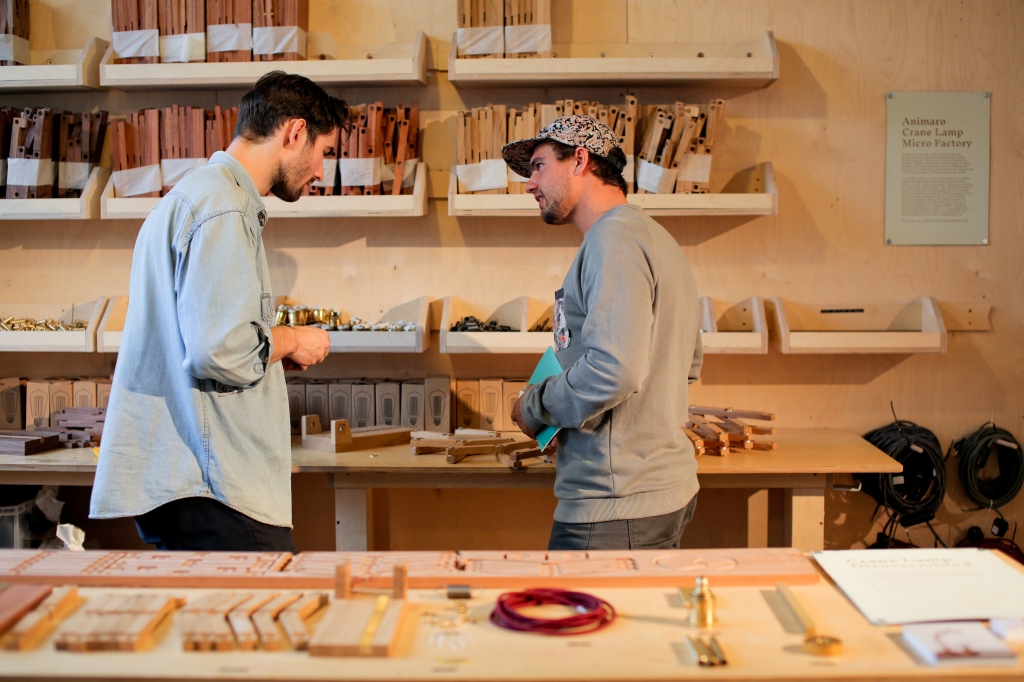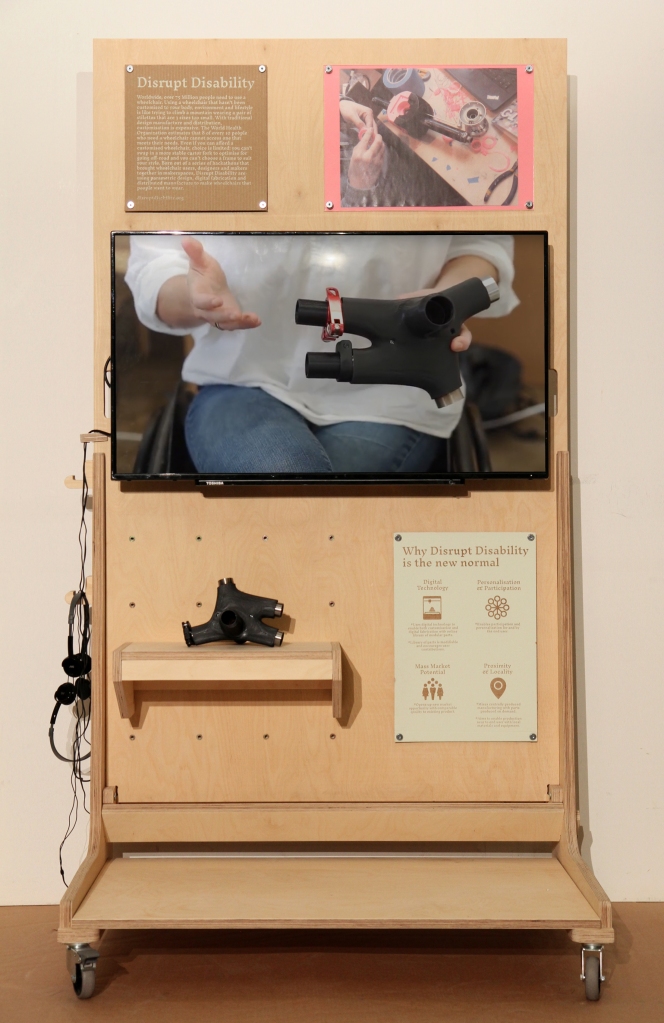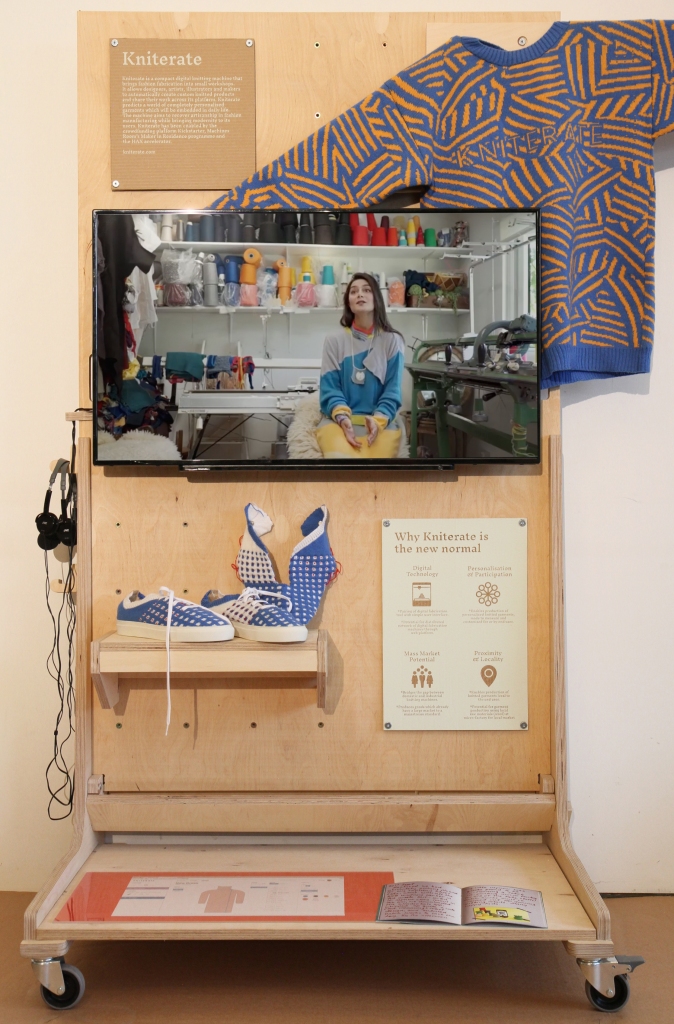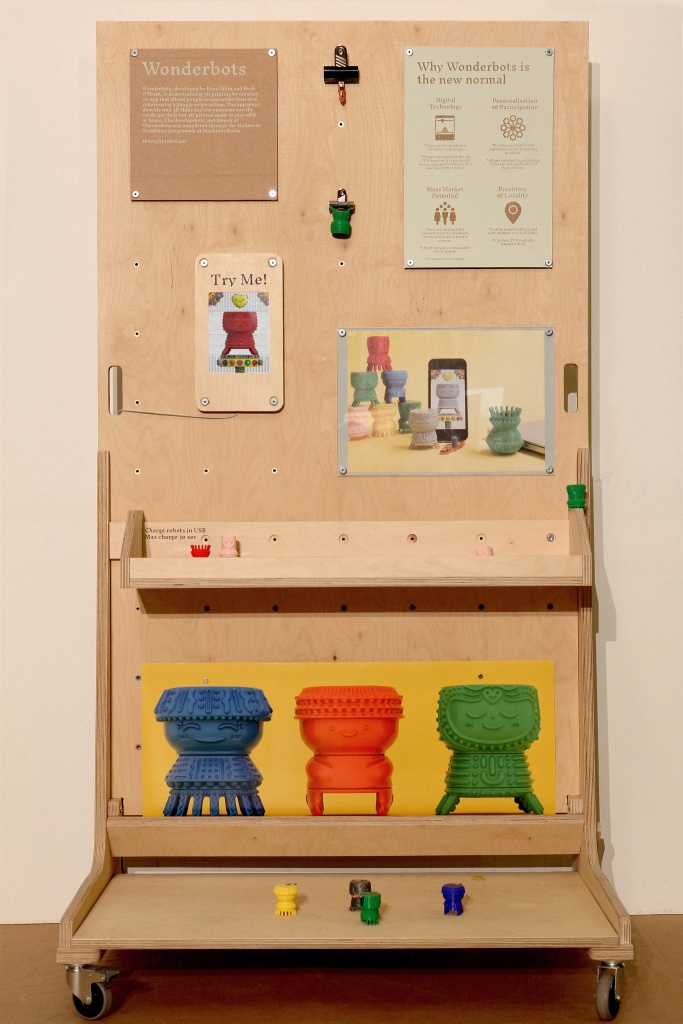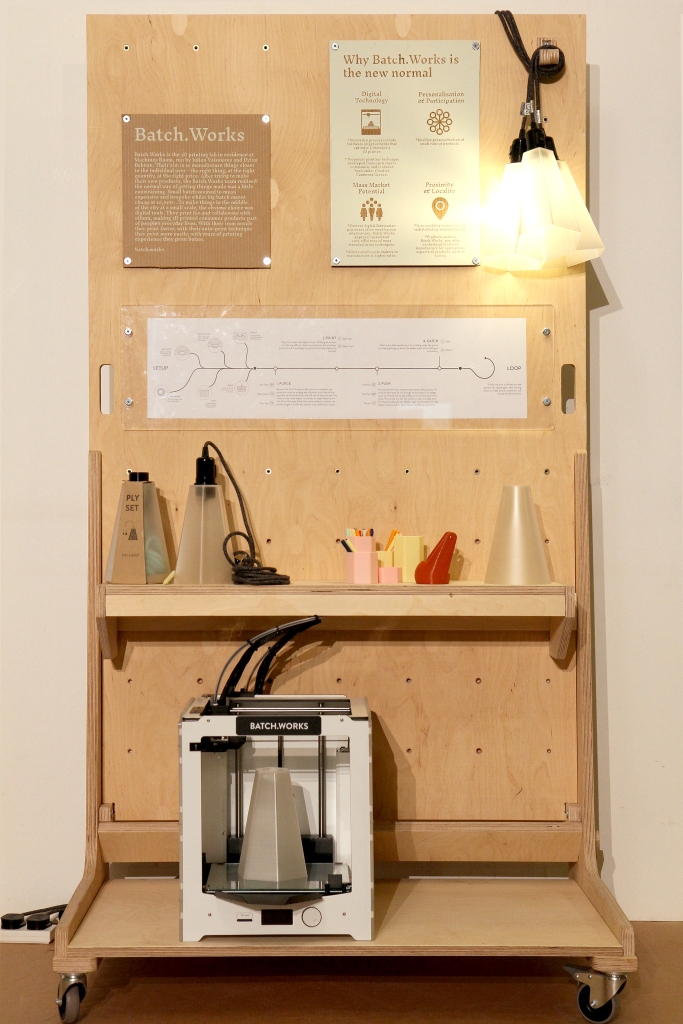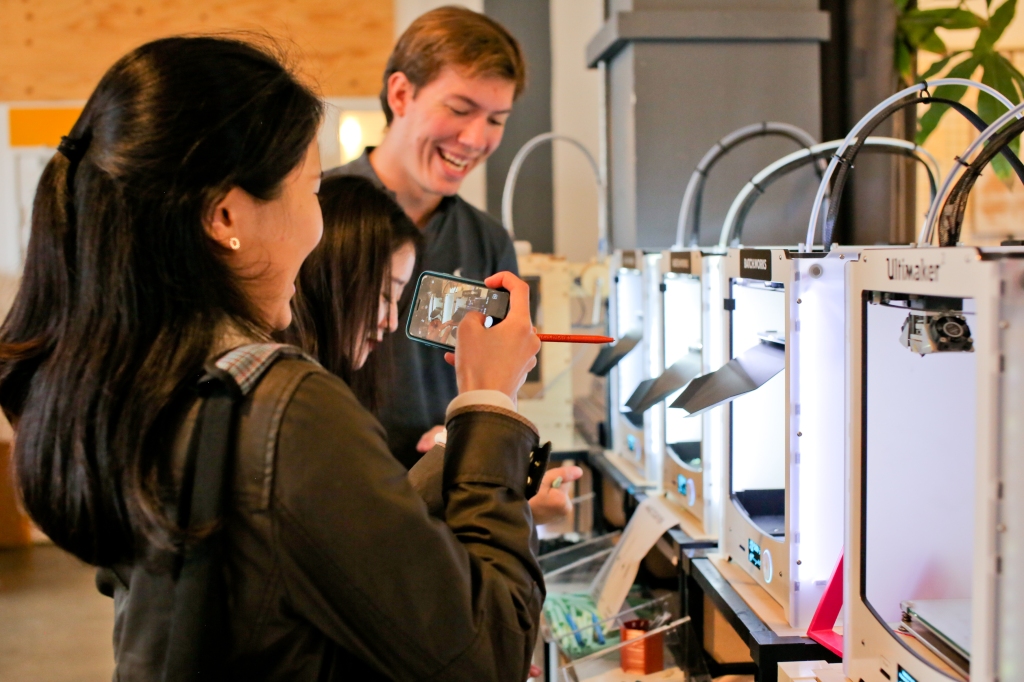Thanks to everyone who came and contributed to A New Normal, a highlight of Machines Room’s year and an opportunity for us to showcase all the amazing projects we have helped cultivate, which are truly experimenting with and rethinking traditional design and manufacturing processes. A success from start to finish, it’s been picked up by the likes of Surface Matter, by Icon magazine and Kickstarter as a don’t-miss LDF exhibition, by Global Design Forum, Crafts Council, and All3DP. Have a look through the exhibition brochure, and take a whistle-stop tour of each exhibit below:
Kobble is a pioneer in parametric furniture and website design, creating products that are infinitely customisable and made to order. The customer inputs their desired dimensions into the website and Fusion 360 design software parametrically adjusts the design, ready for CNC. Kobble makes furniture locally without exploiting labour or environment, cuts out wastage, and replaces massive flatpack store culture with affordable made-to-order furniture. The launch of Kobble was supported by Machines Room.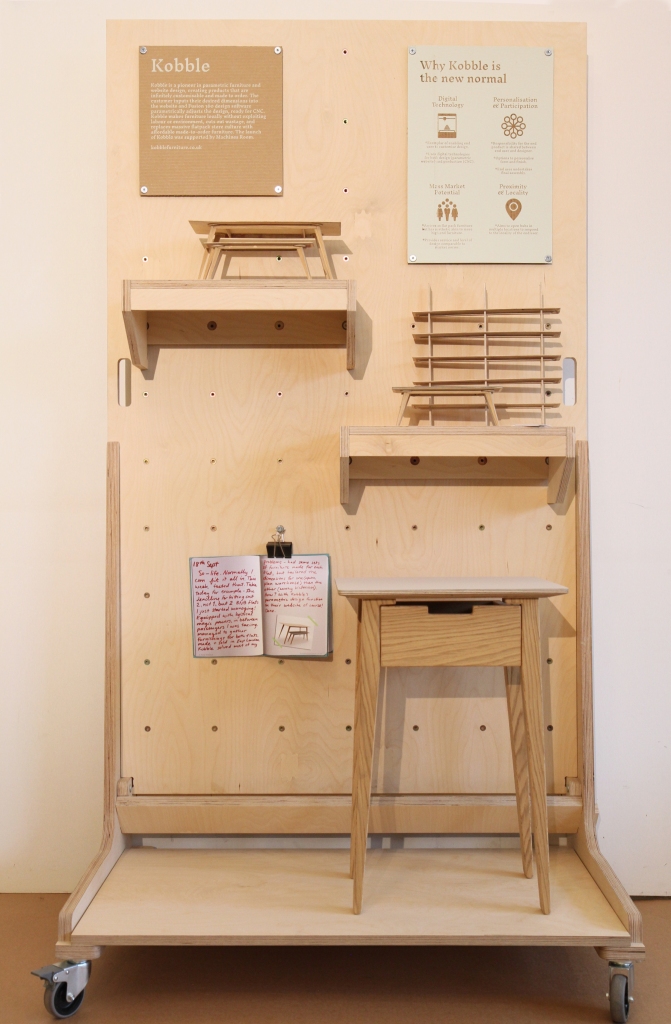
Animaro is a furniture design studio founded in London by Matt Gilbert in 2016. The manufacture and launch of the CNCd Crane Lamp was enabled by the crowdfunding platform Kickstarter in combination with Machines Room’s Maker in Residence programme. A majority of the lamp parts are made in the UK. During LDF the final assembly of lamps will take place on a production line in the exhibition, ready to fulfil Kickstarter pledges.
Disrupt Disability – Worldwide, over 75 Million people need to use a wheelchair. Using a wheelchair that hasn’t been customised to your body, environment and lifestyle is like trying to climb a mountain wearing a pair of stilettos that are 3 sizes too small. With traditional design manufacture and distribution, customisation is expensive. The World Health Organization estimates that 8 of every 10 people who need a wheelchair cannot access one that meets their needs. Even if you can afford a customised wheelchair, choice is limited: you can’t swap in a more stable castor fork to optimise for going off-road and you can’t choose a frame to suit your style. Born out of a series of hackathons that brought wheelchair users, designers and makers together in makerspaces, Disrupt Disability are using parametric design, digital fabrication and distributed manufacture to make wheelchairs that people want to wear.
Kniterate is a compact digital knitting machine that brings fashion fabrication into small workshops. It allows designers, artists, illustrators and makers to automatically create custom knitted products and share their work across its platform. Kniterate predicts a world of completely personalised garments which will be embedded in daily life. The machine aims to recover artisanship in fashion manufacturing while bringing modernity to its users. Kniterate has been enabled by the crowdfunding platform Kickstarter, Machines Room’s Maker in Residence programme and the HAX accelerator.
Post Couture is a fashion collective making garments that can be distributed digitally, adapted to different laser cutter specs, cut locally, and assembled by hand without additional tools, offering an alternative to today’s fashion system. They’re introducing a new era in the production of sustainable and affordable clothing, operating on open-source principles and using 21st century technology. They are the first fashion label that truly embraces the Maker Movement and the Third Industrial Revolution.
Wonderbots, developed by Ross Atkin and Beck O’Brian, is democratising 3D printing by creating an app that allows people to customise their own robots using a simple swipe action. The app plugs directly into 3D Hubs and the customer can the easily get their bot 3D printed ready to play with at home. The development and launch of Wonderbots was supported through the Makers in Residence programme at Machines Room.
Batch.Works is the 3D printing lab in residence at Machines Room, run by Julien Vaissieres and Dylan Bahnan. Their aim is to manufacture things closer to the individual user – the right thing, at the right quantity, at the right price. After trying to make their own products, the Batch.Works team realised the normal way of getting things made was a little constraining. Small batch seemed to mean expensive and bespoke whilst big batch meant cheap at 10,000+. To make things in the middle of the city at a small scale, the obvious choice was digital tools. They print for and collaborate with others, making 3D printed consumer products part of people’s everyday lives. With their 1mm nozzle they print faster; with their auto-print technique they print more easily; with years of printing experience they print better. The development and launch of Batch.Works was supported through Machines Room’s Maker in Residence programme.
Smile Plastics is a materials design studio making exquisite handcrafted panels from waste materials. Smile transforms a range of different mass manufacturing waste streams into unique decorative panels for the architecture and design market. Their materials have been used in wide ranging applications from small products to large scale installations in both residential and commercial premises.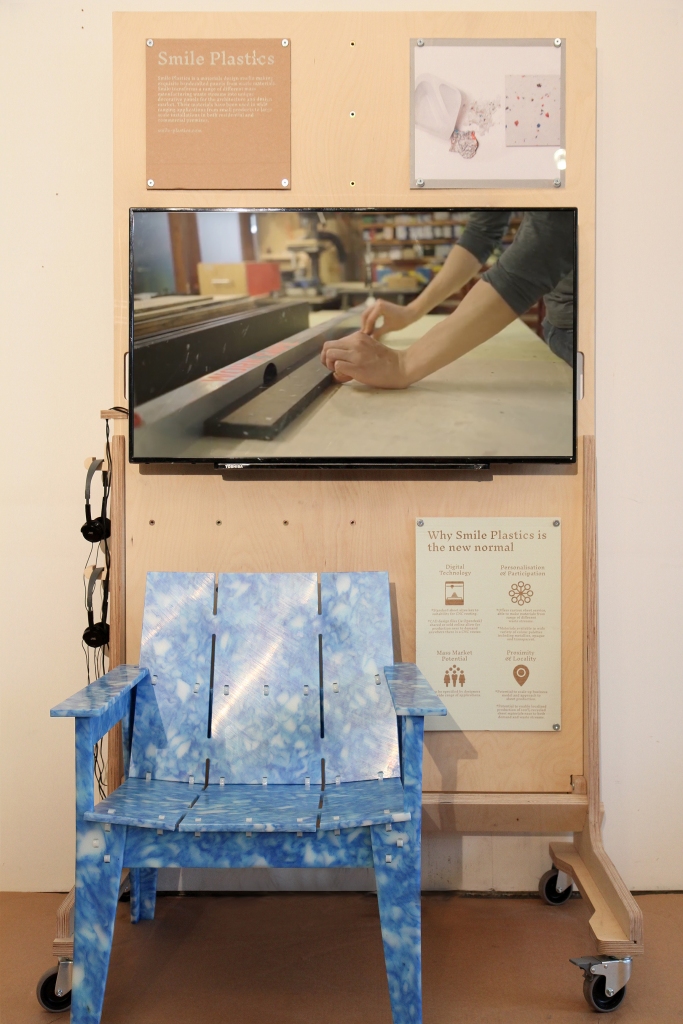
A New Normal was produced and curated by the Machines Room team:
Mark Dale
Thomas Ermacora
Nat Hunter
Gareth Owen Lloyd
Kristin Luke
In collaboration with Distributed Everything:
Andrew Sleigh
Hannah Stewart
James Tooze
Interesting show at Machines Room exploring domestic scale manufacturing #LDF2017 #makermile pic.twitter.com/VXVKk9b26C
— ICON (@iconeye) September 20, 2017
//platform.twitter.com/widgets.js
A few highlights from 'A New Normal' – great exhibition by @machinesroom on the future of manufacturing #LDF17 pic.twitter.com/CQ2fMU8cy0
— Rhiannon (@_rhiannonhunt) September 25, 2017
//platform.twitter.com/widgets.js
Really enjoyed A New Normal @machinesroom Even the display system was awesome! Closes tomorrow so get your skates on //t.co/GRxZhyzyel
— WS Engineering (@WSEngineering1) September 22, 2017
//platform.twitter.com/widgets.js
WE LOVE: A New Normal featuring @SmilePlastics, transforming waste materials beautifully @machinesroom for @L_D_F > //t.co/4G2K1TEuvP pic.twitter.com/NiXYRb2kUo
— Nirvana CPH (@NirvanaCPH) September 21, 2017
//platform.twitter.com/widgets.js
It's Day 4 of #DesignConnections and we are @machinesroom to explore the New Normal & the Maker Mile #LDF17 @SmilePlastics @Kniterate pic.twitter.com/TAyUnZaZPP
— British Council (@British_Design) September 21, 2017
//platform.twitter.com/widgets.js
A New Normal @machinesroom looks at fab examples of how fab products could be made without mass production #LDF2017 @MDREVIEW14 pic.twitter.com/3WoxLgiIfa
— Creative Alchemy (@CreativeAlch) September 20, 2017
//platform.twitter.com/widgets.js
Visit these Creative 3D Printing Startups at the London Design Festival //t.co/4KlF4W4Oir @machinesroom @L_D_F @batchworks_ pic.twitter.com/QHMJSc0ZAe
— All3DP (@All3DP) September 20, 2017
//platform.twitter.com/widgets.js
We're hands on and playing with the cool stuff at @machinesroom's @L_D_F exhibition #AnewNormal #london #makerspace pic.twitter.com/XDMjXVwPa2
— Clear Village (@clearvillageorg) September 20, 2017
//platform.twitter.com/widgets.js
Make sure to stop by @machinesroom for The New Normal. Distributed Manufacturing at it's best. Not to be missed.
— phoenix perry (@phoenixperry) September 19, 2017

